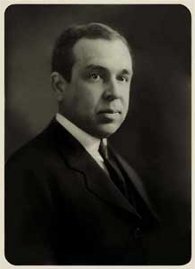Mencken on Machen, Part 2

Henry Louis Mencken (1880-1956), “the sage of Baltimore,” was a lifelong cynic and skeptic who regularly and maliciously assailed and ridiculed conservative, fundamentalist Christianity (see Part 1). However, one Fundamentalist Christian whom he greatly respected was Presbyterian scholar J. Gresham Machen (1881-1937). We were recently made aware of two articles by Mencken in which he lauds Machen for his scholarship, integrity and the internal consistency of his conservative theological views, in contrast to the insipid theology of Modernism. This is the second of the two (copied, with obvious typos corrected, from entrewave.com). While dissenting strongly from some of Mencken’s remarks, his perspective may prove informative to our readers.
H. L. Mencken’s Obituary of Machen
Baltimore Evening Sun (January 18, 1937), 2nd Section, p. 15.
“Dr. Fundamentalis”
The Rev. J. Gresham Machen, D. D., who died out in North Dakota on New Year’s Day, got, on the whole, a bad press while he lived, and even his obituaries did much less than justice to him. To newspaper reporters, as to other antinomians, a combat between Christians over a matter of dogma is essentially a comic affair, and in consequence Dr. Machen’s heroic struggles to save Calvinism in the Republic were usually depicted in ribald, or, at all events, in somewhat skeptical terms. The generality of readers, I suppose, gathered thereby the notion that he was simply another Fundamentalist on the order of William Jennings Bryan and the simian faithful of Appalachia. But he was actually a man of great learning, and, what is more, of sharp intelligence.
Discussion